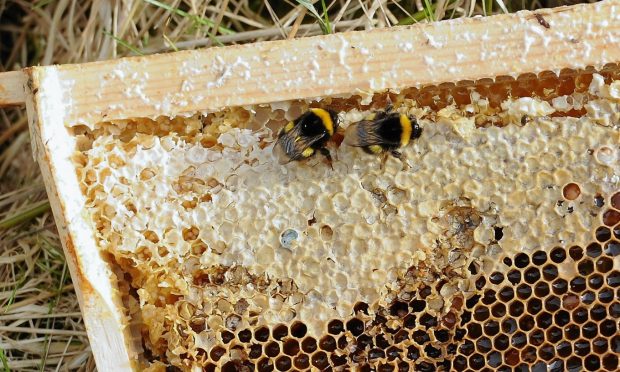International scientists have discovered a positive link between the overall health of bees and the presence of active agricultural production.
The study, carried out by researchers at the University of Tennessee, examined the impacts of row-crop agriculture and the traditional use of pesticides on the honey bee’s biological wellbeing.
Results indicated that the presence of agriculture impacted positively on hive health and colonies in a non-agricultural area struggled to find adequate food resources and produced fewer offspring.
“We’re not saying that pesticides are not a factor in honeybee health. There were a few events during the season where insecticide applications caused the death of some foraging bees,” said lead author of the study, Mohamed Alburaki.
“However, our study suggests that the benefits of better nutrition sources and nectar yields found in agricultural areas outweigh the risks of exposure to agricultural pesticides.”
The study established experimental apiaries in multiple locations in western Tennessee ranging from non-agricultural to intense agricultural production.
Over the course of a year, colonies were monitored for performance and productivity by measuring colony weight, brood production and colony thermoregulation – an important factor in brood development and the health of the resulting adult bees.
Hives located in areas with high to moderate agricultural vegetation grew faster and larger than those in low or non-agricultural areas, while bees located in a non-agricultural environment were challenged to find food. Although fewer pesticide contaminants were reported in these areas, the landscape did not provide sustainable forage, and two colonies in the non-agricultural areas collapsed due to starvation.
Researchers also evaluated trapped pollen from each colony for pesticide residues.
Low concentrations of fungicides, herbicides and insecticides were identified, but at levels well below the lethal dose for honey bees. Imidacloprid was the only neonicotinoid detected, also at sub-lethal levels.
Agricultural pesticides, particularly neonicotinoids, are considered by some to be a key factor in declining honeybee populations.
However, the study found that higher exposure to pesticides in agricultural environments did not result in measurable impacts on colony productivity.
The study was published in the Journal of Economic Entomology.
